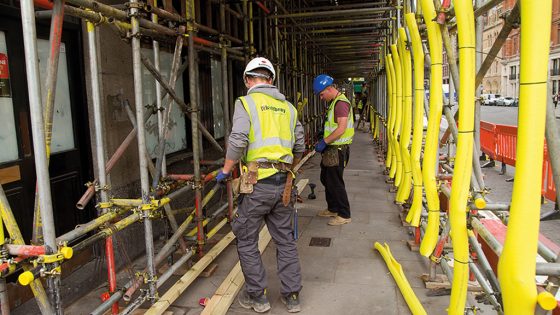Keltbray failed to raise a key plank of its current appeal against its £20m cover-bidding fine in 2021 during the competition regulator’s initial investigation, a hearing has heard.
The contractor is appealing against the financial penalty imposed by the Competitions and Markets Authority (CMA) last year, after the regulator’s investigation into tender price collusion at 10 demolition companies between 2013 and 2018.
Keltbray argues that the CMA made an error by calculating its penalty on the basis of all of its demolition and asbestos-removal turnover, saying it should have been based just on its highly specialised and complex turnover.
At a Competition Appeal Tribunal hearing on Tuesday (30 April), Keltbray chief operating officer Vince Corrigan was questioned over whether the company should have made this point to the CMA during the process of investigation.
The watchdog sent a notice, known as a section 26, to the contractor setting out information about what it was looking into and asking questions about its business and market in March 2021, two years before its fine was set.
Rob Williams KC, representing the CMA, said the form contained questions about demolition services.
He said it gave Keltbray the opportunity to explain about the market, and the firm did so in other aspects of its business, including highlighting barriers to entry outside of London and the South East.
Williams said: “You understood that these requests were about market definition, you had the chance to tell the CMA that highly complex demolition services were in a different market from other demolition services and you didn’t make that point to the CMA, did you?”
Corrigan told the tribunal that the company answered the questions directly and said the questions did not ask about sub-division of the demolition market into segments.
“We were asked very specific questions from the CMA, they were detailed and we responded to them. We were not asked about segmentation,” he said.
When later questioned by Keltbray’s legal representative, Corrigan said the form was sent prior to any potential finding of infringement and before any information about a penalty was provided.
He also said he was not made aware of the CMA assessing the answers against specific criteria to define what the market constituted.
However, the answers still contained a response that said “the core of the business model is specialist provision of complex jobs in a highly regulated environment”, he said.
Williams highlighted evidence submitted to the tribunal by Keltbray about high values and proximity to infrastructure being two of the components of a highly complex job.
Other evidence showed that the firm had categorised a job next to rail lines at Elephant and Castle in South London as “more complex” rather than “highly complex”.
He said such calls were “marginal” and “subjective”, adding: “What struck me about this example is that it looks like shades of grey to me.
“I think what’s come through very clearly is that there are a lot of components that are related to complexity and it’s very hard to come up with any system or simple criteria for classifying the project.”
Corrigan said each project has different component parts which demonstrate their level of complexity, and that they can be assessed to demonstrate “a clear differentiation between more complex and highly complex”.
Later in the hearing, Keltbray’s group finance director Peter Burnside said that a company director, who was involved in the firm’s infringing practices, had helped it prepare evidence for the tribunal.

